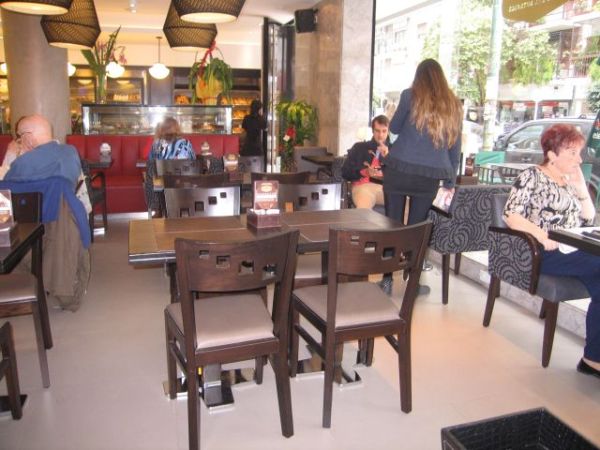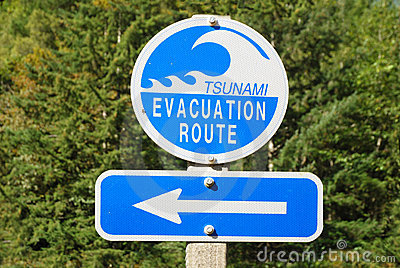Finance for Expats
 Cafe Botanico, Buenos Aires, Argentina
Cafe Botanico, Buenos Aires, Argentina
FINANCES FOR THE EXPAT
United States citizens and residents who file their tax returns in April just passed through the tax season. U.S. citizens living outside the U.S. have extra time to file, and in our case, we always apply for an extension anyway.
As we keep reporting, U.S. citizens living outside the U.S. have additional forms to file reporting any financial accounts held in foreign countries if the total amount of all accounts equals $10,000 or more. The preponderance of opinion is that this report includes precious metals accounts if they are stored by a third party. If you put them in your own safe, that’s a different matter–currently anyway.
You do not need to report real estate holdings, but of course you do need to report income from real estate. The U.S. is one of only two countries in the world that tax their citizens and legal residents who do not live within the borders of the country. Even if you had no tax liability, you still are required to file a return if you had income or have a bank account or accounts, as stated, that total $10,000 or more. We keep mentioning this because we have come across U. S. expats who have lived here for years who were shocked to learn that they were supposed to be filing tax returns. They just assumed that they were no longer obligated to file since they had left the country permanently.
Logical? Yes! True? No!
But there can be tax advantages to living outside the U.S. If you meet the guidelines to qualify for the earned income exclusion you can earn up to $99,200 and pay no tax to the States. However, the earned income exclusion does not cover other forms of income such as dividends and capital gains. Although even in that case, given the right legal vehicle, that type of income might come under the exclusion In any event, if you have taxable income, or if you have accounts that total $10,000 or more outside the U.S., you do have to file, even if no tax is due.
It is also possible to move your IRA or 401K outside the States. We don’t know how long this will last because it is a recurring discussion in Congress to take over the retirement funds “for your own good,” and put them in “dependable” government bonds. So this possibility may not last. Currently, you can hold rental real estate and/or precious metals in your IRA, both inside the U.S. and in another country. There are a number of stipulations. You have to set things up in a certain type of entity (as an LLC or other corporation) and, in the case of rental real estate, you can never live in it yourself and can never rent it to a relative if it is held in an IRA.
We are not accountants here and do not give financial or legal advice. So you would need to consult with your financial or legal adviser or accountant. Our goal here is just to alert you to the possibilities so that you can investigate it further and consider it. This also works if you are self-employed and meet those requirements. But you would need help and advice so that it is set up properly and so that you are aware of all of the rules.
We also hasten to say that right now things seem to be changing so fast that we certainly don’t recommend waiting any longer to at least begin. These things all take time.
ARGENTINA
Argentina is showing ever-increasing signs of the financial stresses that are at work here. We are seeing “Vende” (for sale) signs going up whereas, before, both For Sale and For Rent signs were rare in this neighborhood. But not now. We talked yesterday with the property managers who manage our apartment and they said the real estate business is tough right now. There are more and more sellers but no buyers.
Most people who know Argentina know that the time to buy real estate is in Argentina’s periodic crises. And the signs are becoming more and more evident. Prices in pesos continue to rise. But for the expat with income in dollars, it is getting less expensive to live here. Since the dollar is expected to rise for the next two years, it may become even more affordable for one with dollar income.
The blue dollar (a dollar exchanged at the blue rate) rose against the peso to the neighborhood of 12 pesos not long ago but now is back to 10.65. Fluctuation like this is not unusual in currencies. You can keep a check on the blue rate at http://www.dolarblue.net/. Remember, the blue rate is not the official rate, but more what we might call the “black market” rate. Although the blue rate is technically illegal, it is widely used. Even many stores will give tourists the blue rate if they buy with dollars.
We currently know of furnished, one-bedroom and efficiency apartments in a very good area of Buenos Aires renting for $330 to $400 (U.S. equivalent) per month if you rent on a permanent basis. We are told that rents outside of the Capitol are even more reasonable and there are many beautiful cities in Argentina. Also, right now, citizenship is pretty straightforward, if you qualify. You can have a second citizenship in about two years from when you set your foot on Argentina soil. They do not wait until you achieve legal residency before they start counting. To our thinking this is one of the fastest and best opportunities for that second passport, plus Argentina citizenship gives you access to all MERCOSUR countries.
Things tend to change in South America–and everywhere these days, for that matter–and this could change. So for those who are interested, we would not count on this being the case five years from now. It may be. But we try to be realists here. We think that, as more people seek to take refuge in South America, the requirements will change in all of these countries.
Buenos Aires residents, also known as Porteños, are proud of their culture. We have opera, which is sometimes free, theater, free concerts, free art museums. Almost everybody who comes here loves Buenos Aires, even those who don’t stay, for whatever reason. And we confess, so do we!
However, we are straightforward about the crazy government here. Some expats believe in living far from what we will call the insanity of Buenos Aires. I call Argentina the “lovable schizophrenic” and not without reason. But those who live outside of the Capitol don’t seem to be that concerned about the goings-on here. Also we have a new election coming up and everyone is waiting to see what happens. At the same time, this is a very large city and it is important to learn to be proactive in avoiding crime, as you would in any large city. Living in a good area is important in our opinion. But even here, you need to be aware of your surroundings, not open your door unless you know who it is that is knocking, and you are expecting them, and so on–no matter what the excuse. You don’t wear gold jewelry on the street here. We told one newly arrived couple that, but it was not long before she had a gold necklace snatched and was really upset. She said it was such a tiny chain she didn’t think that would happen. So these are things you need to know. I would not wear gold in Montevideo or Santiago either. Well . . . if you’re going to something special and take a taxi, that’s another thing. But it is prudent to use caution.
We think that, for those who are interested, real estate bargains lie ahead. This may also spill over into Chile, Uruguay and Paraguay. It usually does. We won’t guess the time frame or the extent. Just giving you an early alert if you are interested. We know that some of you are.

In case you wonder, that’s raw salmon on the top!
We have a new restaurant that just opened in our neighborhood. It is the Cafe Botanico, pictured at the very top of this article. The entire building is brand new and we really like this place. It seems to have taken a cue from Starbucks in that the chairs are cushy and comfortable, but otherwise it is a normal restaurant and panaderia (baked desserts–and bread). We decided to try it. Usually we try to order salads if they are available. Almost everything in this city is Italian, with 25 different types of pizza and that many more types of pasta. But usually they have salads. We didn’t see much that met our criteria for “healthy” so we ordered a salmon salad. To our surprise the salad was beautiful but the salmon was raw. Our first experience with raw salmon. To our further surprise, it was excellent. We will return.
We also stopped in for coffee one morning. The wait help is friendly and attentive–and the coffee was great!
URUGUAY
We are entering into the process of prosecuting an embezzlement at a bank in Uruguay, as we reported earlier. We fully intend to report the details to you eventually. The bank is blaming someone else. We have talked to that person who claims no involvement and very readily wrote out and signed their own detailed statement to that effect. Yet the bank claims they have evidence–which so far they have not produced. They say that it is all stored at another location and has to be retrieved.
But even if it were true about the third person that they are charging, the banker himself is still involved. We don’t think it is the top bank organization but more a bit of entrepreneurial ambition on the part of a single banker or branch. At this point we don’t know and that is what we hope to find out.We all read frequently that Uruguay is the Switzerland of South America. So we think that this is going to be the opportunity to find out just how “Swiss” Uruguay really is.
The problem was that we trusted the wrong people. Those of us from the U .S. are inclined to trust professionals–certainly a bank. Now I know some of you are laughing at that statement and thinking that you certainly don’t trust banks. But what we see in the States is all done on a grand scale, not individual clients, as far as we know. In this case, which began several years ago, we could not read Spanish at all and trusted the banker that the document said what he claimed it said. And it didn’t. Not at all!
We have very good Argentina advisers here in Buenos Aires and one of them said, “I don’t understand you people from the United States You come down here and sign things you can’t read?”
These well-to-do Argentinians are so street-smart. But who would think the banker sitting behind the desk would misrepresent the document?
Another of our advisers tells us that he doesn’t trust any bank anywhere in the world and doesn’t keep much money in any of them. He owns a lot of apartments here, plus is in business here and in the United States. And yet he tells us that he avoids banks except for what he needs to have on hand for his business and personal needs.
I have to admit that my own parents, when the depression hit in the U. S. back in the 1930s, were on vacation in Montana. Their Florida bank closed and they were stranded in Montana, unable to get money from their account. Fortunately they were visiting relatives who welcomed a longer stay, my dad found work and got enough money to get back to Miami. They never got their money from the closed bank, nor did they ever access their safe deposit box. Since we think, regardless of what we are told, that history repeats, we think perhaps this is something to seriously consider.
In any event, those of us who subscribe to the four (more or less) flags principle believe in diversification of both assets and location. In so doing, we are spreading the risk.
Since a few people are learning of our own experience, they are telling us of several situations wherein they have been defrauded (though none by the bank) and this is the first we are hearing about it. One wonders how many people are exploited and say nothing. Sometimes it is so slick that you find you have lost money, you suspect it was fraud, but you aren’t really sure and you don’t want to judge someone unfairly. Often it is passed off as a mistake but you are not sure if that is what really happened or if it was planned. Sometimes if the third person involved is someone you considered a friend, you don’t want to think the worst.
The thing is that if we never hear about these things, and we think everything here is secure and proceeds as it should, then we never get our guard up or realize the need to protect ourselves in situations where we normally would not think we have to.
One pitfall can occur when you think a local is your friend. They might be. But there was an attempt to defraud us by someone we have known and genuinely liked for five years in Uruguay. If we had not known beyond a doubt, we would not have believed it. Our disappointment in that man was painful for us.
This same thing not only exists in Argentina, Argentina is known for it. We are told that the most popular song of all time on the pop scene in Argentina was, translated, “If you don’t lie and you don’t steal, you’re stupid.” We don’t make this stuff up, folks. Of course there are good and principled people here. Some store clerks will chase you through the store to give you the rest of your change. We deal with a number of people in whom we have utmost confidence. We have observed the integrity of our Argentina attorney, for example, in several situations.
But locals warn us not to trust anyone until you’ve known them for several years and then maybe–maybe–you can trust them. I think that one factor in our area–and perhaps most or all of South America–is that lying and stealing are acceptable by much of the population. Some of you came from the same culture that we did where the nation’s foundation was the Bible. In our generation we were taught from the start that “Thou shalt not steal” and “thou shalt not bear false witness (lie).” We were taught that a man’s word was to be his bond. If you give your word, and you have integrity, you will keep it. And in our culture most people did not believe they could just go to the priest and confess and get absolution. In our belief system, you had to go back to the person you had wronged and make it right with him.
Albeit that is changing in our native land as our people are led deliberately away from that value system. But it is still endemic in the culture with a majority. It is not endemic here in most cases.
Can you learn to live successfully in this culture? Yes, of course. Many people do and do so very successfully. But we would rather you learn from reading about it here than from personal experience and loss. It is part of the process and we, ourselves, continue to learn–as we see in this bank situation The story will not be complete until we find out how Uruguay handles a situation like this. Stay tuned.
P.S. We also invite your comments if you have anything to add. And if you have questions regarding moving to and living in our part of the world. We also welcome and answer all emails.
info@fourflagsjournal.com





Leave a Reply